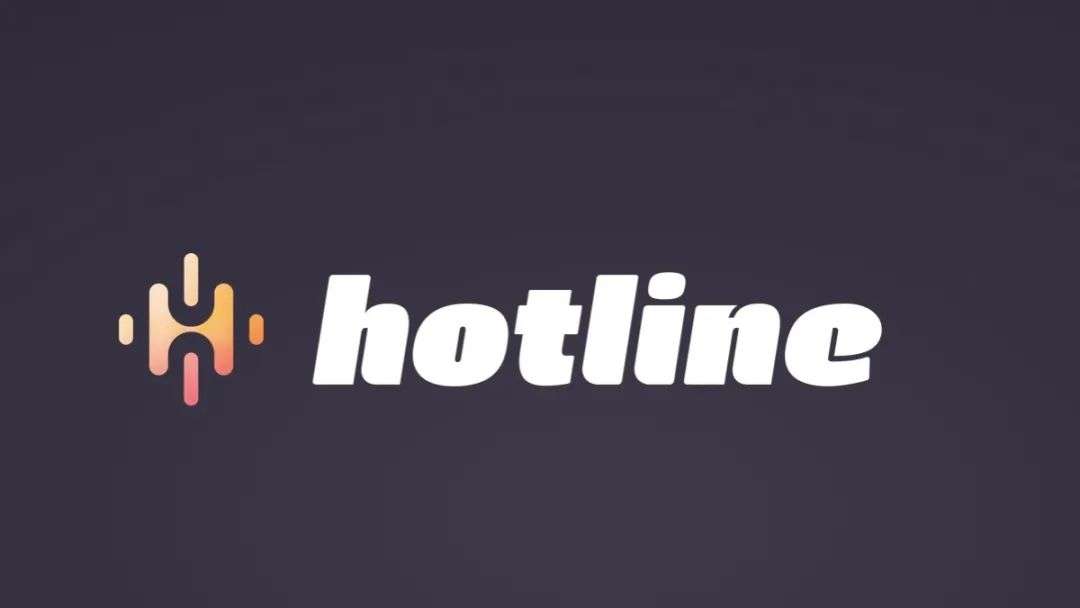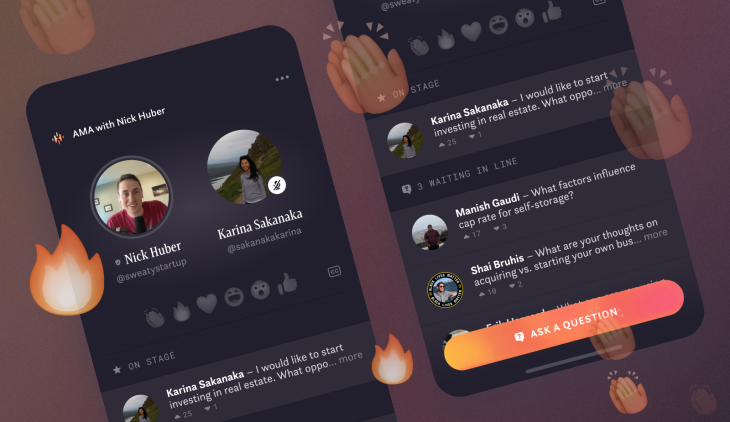Facebook’s CH-like products also began public testing on April 7.
Editor’s note: This article from the micro-channel public number “Beluga sea” (ID: baijingapp), of: Beluga sea small series.
These days, there are many manufacturers copying “Clubhouse”, and Facebook’s CH-like products also started public testing on April 7.
According to TechCrunch, Facebook’s internal R&D team, NPE (NPE Team), launched the latest product “Hotline” on April 7, which is currently in the public beta.
This app can be seen as a combination of “Instagram Live” and “Clubhouse” because it allows creators to communicate with a single audience, and audiences can also ask questions via text or audio. But unlike the “Clubhouse”, creators can choose whether to turn on the camera during the event, instead of only using audio.
TechCrunch said that the “Hotline” test will start at 10 am Pacific Time (1 pm Eastern Time) on April 7th. The first to try this product is real estate investor Nick Huber. Facebook stated that Huber represents a large number of Facebook creators who want to collaborate with “Hotline”, and they want to help users expand their expertise while improving their financial situation.
Eric Hazzard, the person in charge of “Hotline”, previously developed the application “tbh”. “Tbh” is a question-and-answer application focused on increasing user enthusiasm. Within nine weeks, its daily active users grew to 2.5 million, and the application was subsequently acquired by Facebook.
However, the inspiration for the new application is mainly from the emerging social platform “Clubhouse”. Users who have used “Clubhouse”, “Twitter Spaces” or other audio social networks will also be familiar with the user interface of “Hotline”. There is a speaker logo at the top of the mobile interface (or on the left side of the PC version page), and the event host will appear in the form of a circular icon or a real-time video stream. At the bottom (or PCThe side of the end) is the active audience.
However, voice platforms such as “Hotline” and “Clubhouse” also have some differences. For first-time users, “Hotline” allows users to log in through Twitter and then verify their identity through SMS.
The “audience” of the event is divided into two parts: one is people watching the event, and the other is people asking questions. At the top of this section, users will see a list of questions raised, and other viewers can vote for or against these questions. Creators can check the sections to find the next question they want to answer, and they can also drag the audience to the main stage and have a conversation with them.
The audience must first ask their own questions, and only after they become the questioner will they have the opportunity to be invited by the host to “come on stage.” After taking the stage, the questioner can only use audio communication for the time being, and the video communication function is not yet open. When asking questions, other listeners can also use emoji to comment on the question, including applause, flame, love, laughter, surprise, and thumbs up.
The host can remove inappropriate content from the question list, or remove the audience from the “Hotline” session. In the initial test, Facebook will also control the activities on the platform and delete any users who violate the Facebook community standards, terms of service, data policy, or NPE team supplementary terms.
Compared with “Clubhouse”, Another significant difference of “Hotline” is that call activity will be recorded by the platform.
Different from “Clubhouse”, “Hotline” will automatically generate a recording. After the event ends, the host will get two recordings of the meeting, one in mp3 format and the other in mp4 format. Creators can put these withinYou can upload it to “YouTube” or “Facebook”, or edit it into a short content that meets the requirements of applications such as “TikTok”, or convert the recording into a Podcast.
Facebook stated at the press conference that anyone can join “Hotline” for free, and there is no limit on the number of viewers in the “Hotline” room, but these may change with the test.
“Hotline” is one of several applications launched by the Facebook NPE team. The team is also continuing to test a creator app called “Super”, which is similar to “Cameo”. Previously, NPE also tested a pure audio call application “CatchUp” that was offline last year, and another question-and-answer product called “Venue”, which is more similar to the live event assistant of “Twitter”. Recently, the NPE team also launched the “TikTok” style video applications “Collab” and “BARS”, which focus on song chorus and rap creation respectively.
NPE’s applications may not all go online separately, but NPE’s accumulated experience from application testing can provide a reference for Facebook’s subsequent product development. For example, adding new features to existing products (such as “Messenger Rooms” or “Facebook” Live).
“Hotline” is not the only attempt by Facebook to challenge “Clubhouse”. The company also recently confirmed that “Messenger Rooms” will also use “Clubhouse” as a competing product to further improve the user experience.
This article is compiled from Facebook tests Hotline, a Q&A product that’s a mashup of Clubhouse and Instagram Live.



